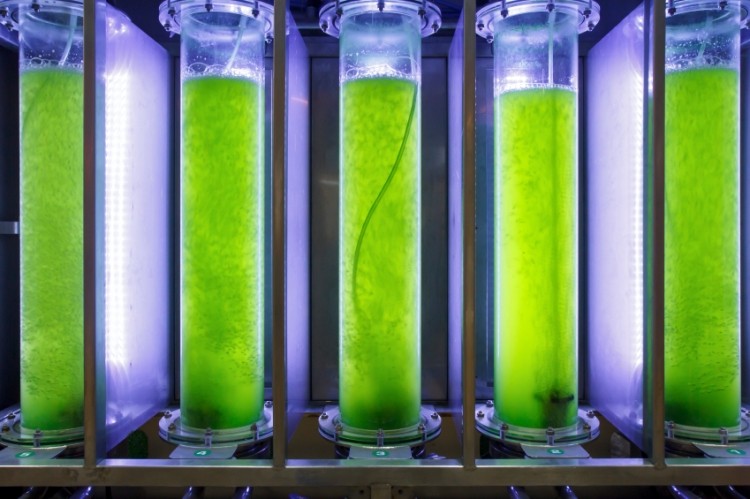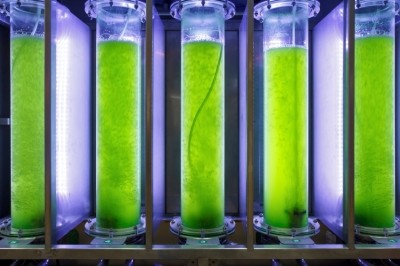ZIVO seeks feed industry collaboration to test its ‘cheap’ algae ingredient

The Michigan based biotech firm announced earlier this month that it had, to date, received $1m in Q1 2016 funding advances from lead backer, HEP Investments, to continue testing its algae biomass.
“We are putting a data package for US Food and Drug Administration (FDA) regulatory approval on our dried algae biomass for use in dairy cows. We have already carried out extensive research over the past four years and can show substantial data including feeding, gene activation and toxicological studies,” Andrew Dahl, CEO of the Michigan based biotech company, told us.
The algal biomass in a commercial feed additive form consists of dried, powdered algae that are agglomerated, encapsulated and pelletized to blend well in mechanized mills and mixers, he explained.
“We want to get an international feed company on board now to study and test-market our algae product in dairy formulations. The optimal supplementation level for our product is 1-3% of total feed for dairy cows.
"We want to carry out demonstration projects with some of the major players to show how the compound's combination of non-starch polysaccharides, vitamin A, amino acids and quality protein, can support milk productivity on a herd-wide basis by improving the performance of cows with lower output, as well as supporting the cow's immune system.
"We will then start a platform to licence out the IP and use the royalties accrued to generate the much needed supporting trials and data for expansion into swine and poultry applications,” said Dahl.
‘Low cost’ cultivation system
The R&D company’s algae cultivation model, he said, eschews complex and costly fermentation systems, photo-bioreactors, panels and tubes associated with microalgae production in favor of the most basic and cost-efficient models.
Production involves a covered, shallow pond constructed of inexpensive, readily-available materials. Start-up costs would come in just under US$20,000, said the CEO.
“Our philosophy has always been based on the idea that we are growing an agricultural commodity. You've got to get this cheap to make it viable. You wouldn’t grow soy using such costly production methods so why not apply the same approach to algae cultivation.
"We have found an algal strain that will flourish in the simplest of production environments at the lowest possible cost with only solar energy to maintain high yields - an affordable approach that can be practiced most anywhere,” said Dahl.
Background
In a departure from R&D planning typical for the algae industry, he said ZIVO developed its business model first, and only then selected and optimized algae from its proprietary polyculture that best fit the criteria of low start-up cost, sustainability, high yield, continuous harvest, optimal levels of protein, micronutrient and non-starch polysaccharides (NSPs), ease of post-processing and the potential of multiple applications across species.
“We sort of inherited a situation. Some of the management and shareholders approached me about coming in to run a company that had an algae product but was floundering.
"We reorganized everything, shut down certain facilities and decided that what it needed to be was an R&D based business.
"We moved all research activities to Arizona State University and we analyzed strains to see what we could do with them, essentially we looked at it from the ground up,” said Dahl.
Even though the strain was optimized in laboratory and clean-room conditions, the objective, he said, was to develop one that would grow rapidly and continuously with yield targets per liter as good as or better than phototropic species currently under cultivation, in conditions that would include the likelihood of contamination and competition.
The company said those targets have now been largely achieved.
And it said, under ideal conditions, a fast-growing alga such as its strain may produce up to 38 times the amount of protein as soybeans but with nearly 70% less water consumption than soybeans.
The ZIVO strain, said the producer, can also be harvested weekly year-round, with no re-start or re-inoculation necessary. It repeats its ‘bloom’ cycle continuously as long as sunlight, water and nutrients are supplied. “Test cultures at the Arizona Center for Algae Technology and Innovation (AzCATI) have remained viable for more than a year despite continuous harvest,” noted a company white paper.
The powdered form contains approximately 45% pure protein, according to the US National Food Laboratory, while initial toxicology tests conducted by Greenwater Laboratories indicated no neurotoxins, bacterial LPS or chemical contamination from the growing and harvest process, said Dahl.
Compliance tests
He said ZIVO as moved beyond the proof of concept stage and is now growing enough algae for repetition purposes.
Biomass output for compliance studies and post-processing tests will be produced at its recently constructed installation at the Florida Institute of Technology Vero Beach facility.
The two 40,000L ponds there are intended to simulate real-world low-cost, low complexity production conditions that can be duplicated almost in any environment where water and sunlight are available.
Once cGMP protocols are established and validated, the R&D team intends to scale up production further to large-scale commercial levels.
Finished feed analysis
Algal biomass, wet or dry, is likely never consumed in its pre-processed, harvested state. As a dry powder or slurry, it will always be mixed with other ingredients to create a finished product, said Dahl.
He explained that, as part of the productizing process, the R&D team plan to mix the biomass at benchtop sample sizes with additives and ingredients commonly found in finished feeds and assess any interactions, degradation or changes in the feed itself.
Dahl said while the dietary supplements market holds appeal as well, the company is initially focused on exploiting the feed sector potential.
















